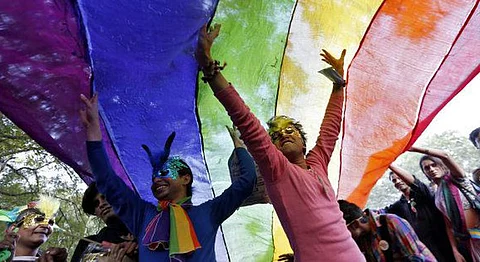
- HOMEGROWN WORLD
- #HGCREATORS
- #HGEXPLORE
- #HGVOICES
- #HGSHOP
- CAREERS
- ABOUT US
- CONTACT US

September 6, 2018 will be etched in Indian history as the day when love triumphed. At 11:30 am this morning, the Supreme Court issued its verdict on Section 377 of the Indian Penal Code (IPC) subsequently decriminalising homosexuality and gay sex. This verdict is groundbreaking for all those who have lived with concealed identities all their lives and a massive step forward towards redefining the meaning of democracy for India.
It doesn’t come as a surprise that the roots of this law can be traced all the way back to the British era. Section 377 was introduced by the British while India was still colonised and penalised all sexual activities “against the order of nature“, this bracketed homosexuality with something as extreme as bestiality. The bill when introduced was modelled around the Buggery Act of 1533, which defined ‘buggery’ as unnatural sexual activity against the will of man and God, thereby, criminalising anal sex, bestiality and homosexuality.
In July, 2018 a five-membered Constitutional bench led by Chief Justice of India Dipak Misra and comprising Justices R F Nariman, A M Khanwilkar, D Y Chandrachud and Indu Malhotra, began hearing petitions against Section 377. The petition that fueled the convening of this bench was a petition filed by Bharatnatyam dancer Navtej Singh Johar, chef Ritu Dalmia, business executive Ayesha Kapur, journalist Sunil Mehra and hotelier Aman Nath. In this petition, the five people in question claimed that their “rights to sexuality, sexual autonomy, choice of sexual partner, life, privacy, dignity, and equality, along with the other fundamental rights guaranteed under Part-III of Constitution, are violated by Section 377.”
Section 377 was first challenged in 1994 by the AIDS Bhedbhav Virodhi Andolan, followed by the Naz Foundation challenging the constitutionality of the Section 377 in Delhi High Court in 2001.
If you liked this article we suggest you read:
